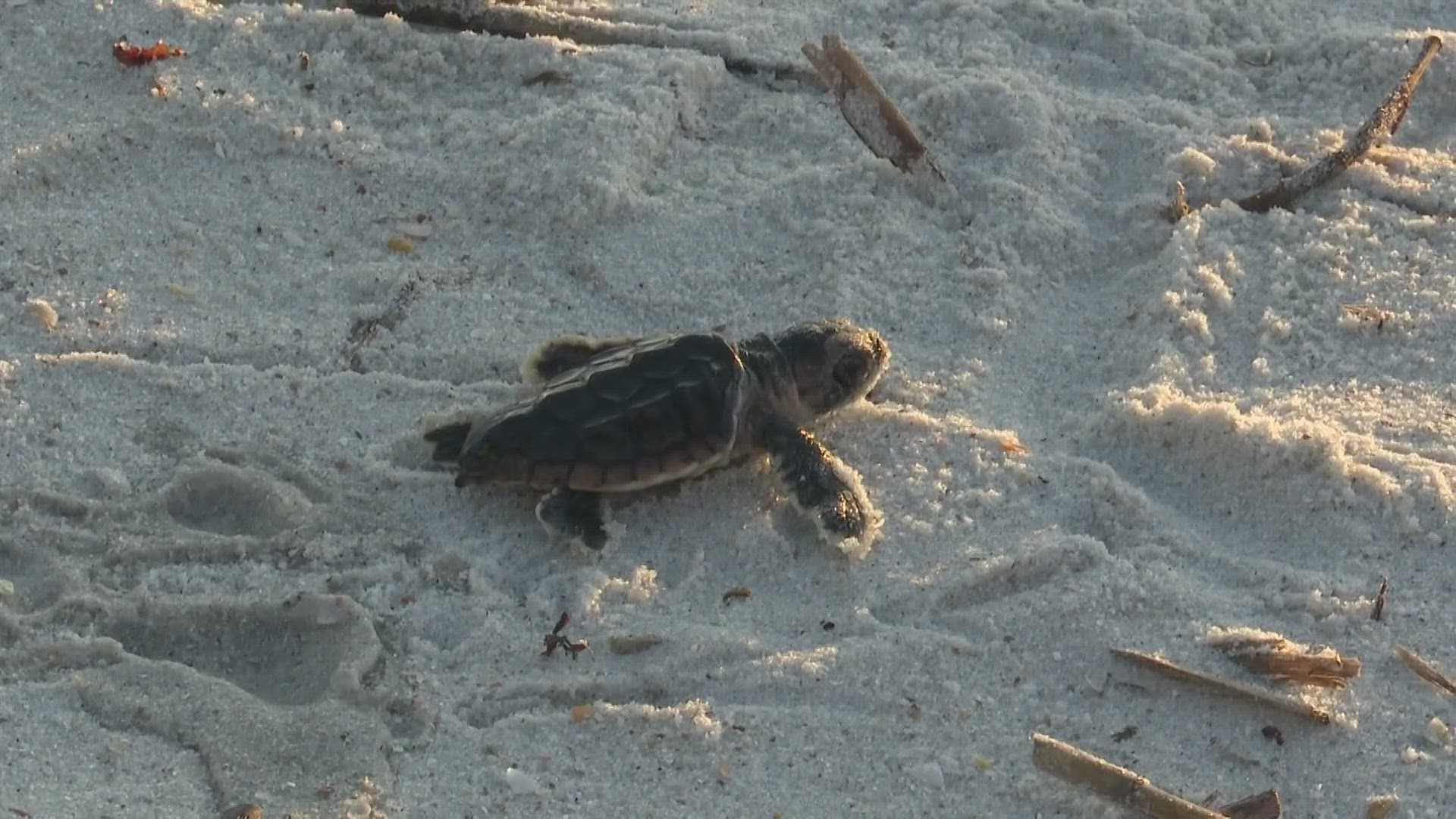PONTE VEDRA BEACH, Fla. — The Ponte Vedra Sea Turtle Patrol has already recorded over 3,800 sea turtle eggs that have hatched so far this nesting season. On Saturday, the group found four additional nests that had baby sea turtles emerge.
Everyday during sea turtle nesting season, from May to October, volunteers with the Ponte Vedra Sea Turtle Patrol ride along six miles of beach in St. Johns County to check established nests and to look for new mothers.
"We start at 6:30 a.m. and sometimes we're not off the beach till 10 a.m., sometimes even 11 a.m.," said Sandy Stam, who has been a volunteer with the Ponte Vedra Sea Turtle Patrol for over 30 years. "It all depends on what we find along the way. If we've got emergence, then we have to find the turtles that went into the dune, that takes us time. If it's a new nest, we have to set it up and do all the coordinates and everything. If it's a nest that's underwater, we might have to relocate it."
The patrol started this season with 105 total nests and leaders say over 50 have yet to emerge. A nest can have upwards of 100 eggs.
The data the patrol collects helps the Florida Fish and Wildlife Conservation Commission monitor how many turtles are nesting and whether the species' numbers are growing or declining.
"We have to look at every nest that's already been laid to make sure they're not hatching or that they don't have evidence of predation and things like that," Stam said.
The patrol has a federal permit to touch turtle nests and eggs, which otherwise violates state and federal laws.
"If anybody sees the turtles actually emerging, make sure they go to the ocean, do not touch them," Stam said. "Make sure they are not eaten by the birds, the crabs or anything else like that. And if the turtles go [in] the wrong direction, like head toward the dunes, then they need to call one of these numbers and notify us so, we could come out and search the dunes. And make sure we get them out of there and get them where they belong."
Volunteers also spend time cleaning up trash left behind on the sand, so baby turtles can have the best chance at making it to the water.
"We want the beach clean because the sea turtles have to go over everything as they go [into] the ocean," Stam said. "We don't want them caught in chairs and blankets and tents, we want [it] dark so they only go to the ocean and they don't go to the hotel or another place that has lights on. And we want it flat because, you see all these little holes? The turtles can fall in them and it takes a lot of energy for this little tiny turtle to get out. So, we want to make it as easy as possible to get as many as we can in the ocean."
Nests are also available for adoption for anyone looking to help with conservation efforts.

